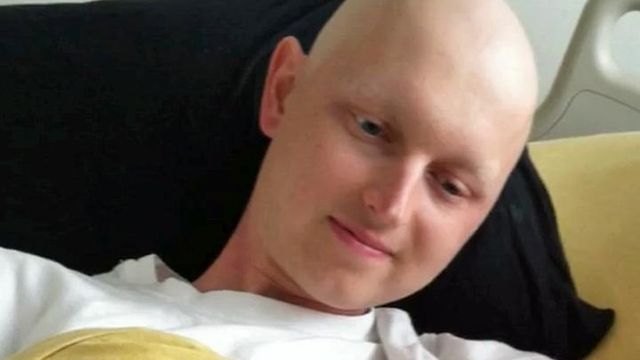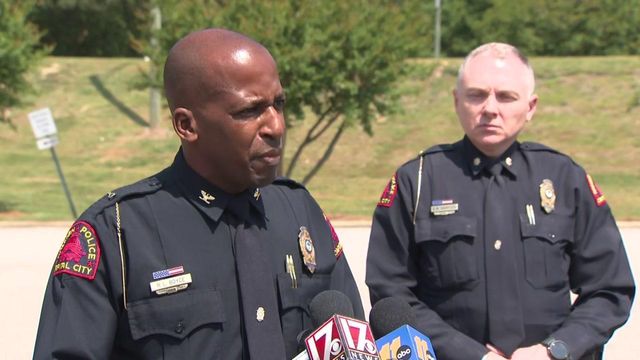Three Wake students battle rare cancer: Cluster or coincidence?
A Wake Forest mother is pushing the state to investigate after three teenagers from the same graduating class were diagnosed with an extremely rare form of cancer. A fourth teen who lived nearby received the same diagnosis in 2009.
The teens, all of whom lived within a 3- to 4-mile radius of each other, battled Ewing’s sarcoma – a cancer so rare that only about 250 people in the U.S. are diagnosed with it each year.
Robin Harris, whose son Alex Harris was diagnosed in March 2011, reported concerns about a possible cancer cluster to her son’s doctor at Duke University Hospital, the North Carolina Department of Health and Human Services and a sarcoma organization.
“Statistically, it’s unbelievable … Someone needs to look at it and say, ‘Hey, we need to investigate this,’” Robin Harris said.
She and the other families say they were under the assumption that the cases would be investigated. Robin Harris says she was told the cases would be referred to the Centers for Disease Control and Prevention.
The WRAL Investigates team found that the state did not do a thorough investigation, the CDC was not informed of the cases and the families were kept in the dark due to an "unfortunate oversight," according to a DHHS spokeswoman.
Ewing's sarcoma is a childhood cancer found in the bone or soft tissue and usually strikes children, mostly white boys, between the ages of 10 and 20. Some symptoms include pain or swelling in the arm, leg, chest, back or pelvis and a fever or broken bone for no reason, according to WebMD.com. Researchers understand little about the cancer, but they don't think it’s hereditary.
Carly O’Day, now a freshman at East Carolina University, was diagnosed with Ewing’s sarcoma two months before her high school classmate Alex. Another classmate, Zach Osborne, was the third to be diagnosed.
“I’m thinking there has to be something up,” Zach said.
Zach, Carly and Alex went to the same middle and high schools together. The trio shared a class in a trailer during their freshman year at Wake Forest-Rolesville High School in 2007-08, but that is the only place they can remember where all three were together over an extended period of time.
“(I) actually sat beside Alex. It was literally back-to-back classes. I had one with Carly first and then one with Alex," Zach said.
During their senior year, the 50-year-old building underwent renovations and they remember walking through construction. However, doctors say no one knows the cause of their cancer or what could have triggered the cases.
The three classmates were each treated at Duke Hospital, which has a team designated to sarcoma research.
“It’s really hard to know when these genetic errors happen ... For the vast majority of childhood cancers, we don't know the inciting event,” said Dr. Corinne Linardic, who works with pediatric cancers at Duke. "(However), I think that any sort of rational person would pause and say, ‘Hmm, that’s unusual. This should be reported."
Robin Harris says she’s aggravated because she did report the cases and she doesn't believe the state did a proper investigation.
The WRAL Investigates team found that the information she provided was forwarded to the North Carolina Central Cancer Registry, which is a division of the North Carolina Department of Health and Human Services. On Oct. 17, 2012, the cancer registry wrote a letter to Robin Harris but failed to send it to her due to an "unfortunate oversight," according to DHHS.
After the WRAL Investigates team alerted DHHS to the error, the agency reached out to Robin Harris "to apologize for the oversight and to see that the October 2012 report is delivered," DHHS spokeswoman Julie Henry said in a statement.
"As a result of this incident, a new policy for tracking cancer cluster inquiries has been developed to ensure prompt response to the citizens we serve," Henry said.
In the October 2012 letter, the agency said it reviewed fewer than 1,800 Ewing's sarcoma cases in North Carolina between 1990 and 2011. Of those cases, fewer than 120 were diagnosed in Wake County.
“This case, we did not find an elevation compared to the state rates,” said Dr. Ricky Langley, an epidemiologist with the state Division of Public Health. His group investigates cancer clusters by looking beyond the numbers.
Despite the three Wake Forest teens living within miles of each other and going to the same school, the cancer registry said their cases were "not concentrated in one area," according to the letter.
“I was not involved in this case, so I can’t really give you all the details on that,” Langley said. “We work closely with the cancer registry. Once a problem is identified from them or us, we tend to share the information.”
Langley says there was no sharing of information in this case, even though it seemed "suspicious," "unusual" and "would warrant further investigation." When asked about the process of investigating clusters, Langley admitted there are flaws in the system.
Robin Harris and the other families say they hope the state will take the cases seriously and investigate. “Three kids in the same graduating class, having the same cancer and no one is shocked at this?” Robin Harris said.
“When Carly and Alex happened, that was very weird,” Julie O’Day, Carly’s mother, said. “That was, ‘Wow, there’s got to be something going on in the water.’ But when Zach got it, it’s like, ‘God, it has to be a cluster, because there’s no other explanation for it.’”
Duke Hospital and public health department officials say they rely on families to report suspected cancer clusters. State health officials say they investigate 12 to 15 possible clusters a year and that confirming one is very rare. The last confirmed cancer cluster was in Greensboro in 2012 and the cause was undetermined, according to Langley.
Those who want to report a possible cancer cluster should call DHHS's Occupational and Environmental Epidemiology branch at 919-707-5900.











